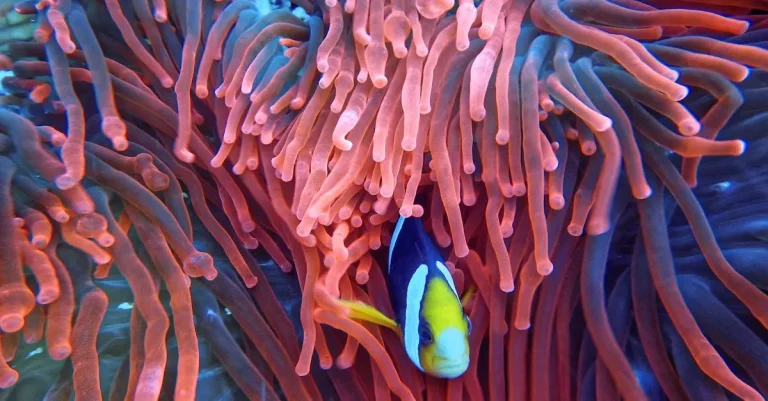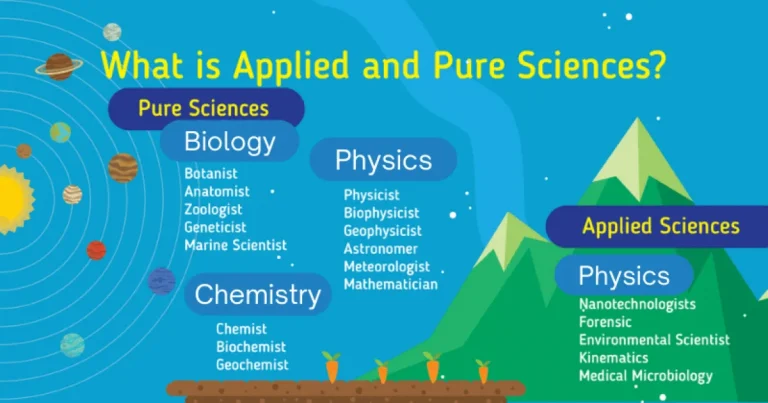Is Biological Science The Same As Biology? Comparing The Fields
Biological science and biology sound remarkably similar at first glance. However, while the two fields share significant overlap, they have some distinct differences in their scope and approach to the study of living organisms.
To the casual observer, the terms may seem interchangeable, but they are not actually synonymous. In this article, we’ll compare and contrast biological science and biology to understand the nuances between these closely related disciplines.
Defining Biological Science
Biological science is a broad field that encompasses the study of living organisms and their processes. It is often used interchangeably with the term “biology,” but there are subtle differences between the two.
To fully understand the distinction, it is important to delve into the overview of focus and topics, as well as the interdisciplinary nature of biological science.
Overview of focus and topics
Biological science focuses on the exploration and understanding of life in all its forms. This includes the study of various branches such as zoology, botany, microbiology, genetics, ecology, and more.
Each branch investigates different aspects of living organisms, from their structures and functions to their behaviors and interactions with the environment.
Zoology, for example, delves into the study of animals, examining their anatomy, physiology, behavior, and evolution. Botany, on the other hand, is concerned with the study of plants, including their growth, reproduction, and adaptations.
Microbiology focuses on the study of microorganisms, such as bacteria and viruses, and their impact on health and the environment.
Genetics is another significant branch of biological science, exploring the heredity and variation of traits in living organisms. Meanwhile, ecology examines the relationships between organisms and their environment, considering factors such as population dynamics, energy flow, and the conservation of biodiversity.
Interdisciplinary nature
One of the distinguishing features of biological science is its interdisciplinary nature. It integrates knowledge and methodologies from various scientific fields, such as chemistry, physics, mathematics, and even computer science.
This interdisciplinary approach allows researchers to gain a deeper understanding of complex biological phenomena and address multifaceted research questions.
For instance, the field of bioinformatics combines biology and computer science to analyze and interpret biological data using computational tools. This has revolutionized the study of genomics, enabling researchers to sequence and analyze DNA more efficiently.
Additionally, biophysics applies the principles of physics to investigate biological systems, such as the mechanics of muscle contraction or the electrical signals in the nervous system. These interdisciplinary collaborations have led to groundbreaking discoveries and advancements in biological science.
Defining Biology
When it comes to the field of science, the term “biology” is often used interchangeably with “biological science”. However, there are subtle differences between the two that are worth exploring. By understanding these differences, we can gain a clearer perspective on what each field encompasses and how they contribute to our understanding of the natural world.
Focus on living organisms
Biology, as a discipline, primarily focuses on the study of living organisms. It explores the structure, function, behavior, development, and evolution of all forms of life. From the microscopic world of cells to the vast ecosystems of the planet, biology covers a wide range of organisms and their interactions.
It seeks to answer questions about how life originated, how it functions, and how it adapts to different environments.
Biological science, on the other hand, is a broader term that encompasses various scientific disciplines related to living organisms. It includes fields such as genetics, microbiology, ecology, zoology, botany, and many others.
Each of these sub-disciplines focuses on a specific aspect of life, allowing researchers to delve deeper into the intricacies of different organisms and their ecosystems.
Study of life at molecular to ecosystem level
At its core, biology studies life at different levels of organization. This includes everything from the molecular level, where scientists investigate the chemical processes that occur within cells, to the ecosystem level, where they examine how organisms interact with their environment.
For example, molecular biology focuses on the structure and function of biomolecules, such as DNA and proteins, and how they contribute to the overall functioning of cells. On the other hand, ecology looks at the relationships between organisms and their environment, studying topics such as population dynamics, species interactions, and the flow of energy and nutrients through ecosystems.
Comparing the fields of biology and biological science, we can see that biology provides a comprehensive framework for understanding life, while biological science allows for a more specialized and in-depth exploration of specific aspects of living organisms.
Both fields are crucial in advancing our knowledge and contributing to various scientific and medical advancements.
For more information on biology and biological science, you can visit websites such as www.biology.com and www.biologicalscience.org.
Key Differences Between the Fields
Scope and specialization
While biological science and biology are closely related, they differ in terms of scope and specialization. Biology is a broad field that encompasses the study of living organisms, including their structure, function, behavior, and evolution.
It covers a wide range of disciplines such as botany, zoology, ecology, and genetics. Biological science, on the other hand, is a more specific term that refers to the scientific study of biology in a rigorous and systematic manner.
It focuses on the application of scientific methods and principles to understand and explore the intricacies of life.
For example, a biologist might study the behavior of a specific species of bird, while a biological scientist might conduct experiments to understand the underlying mechanisms that drive that behavior.
Biological science often involves interdisciplinary research, drawing on concepts and methodologies from various scientific fields such as chemistry, physics, and mathematics.
Approach to the study of life
The approach to the study of life is another key difference between biological science and biology. Biology often takes a descriptive approach, where observations and data are collected to understand the natural world.
It focuses on identifying patterns, classifying organisms, and describing their characteristics.
On the other hand, biological science takes a more analytical and experimental approach. It aims to uncover the underlying principles and mechanisms that govern life processes. Biological scientists often conduct controlled experiments, manipulate variables, and collect quantitative data to test hypotheses and make scientific conclusions.
This approach allows biological scientists to delve deeper into the complexities of life, exploring the molecular, cellular, and genetic mechanisms that underlie biological phenomena. By understanding these mechanisms, they can develop new treatments, technologies, and interventions to address various challenges in fields such as medicine, agriculture, and environmental conservation.
For more information on the differences between biological science and biology, you can visit www.biological-sciences.org or www.biologyexplained.org.
Conclusion
While biological science and biology substantially overlap, biological science encompasses a broader interdisciplinary approach to the study of living systems. Biology remains more focused on living organisms specifically.
The terms may be used interchangeably in general contexts, but each field has unique aspects that distinguish it from the other.







